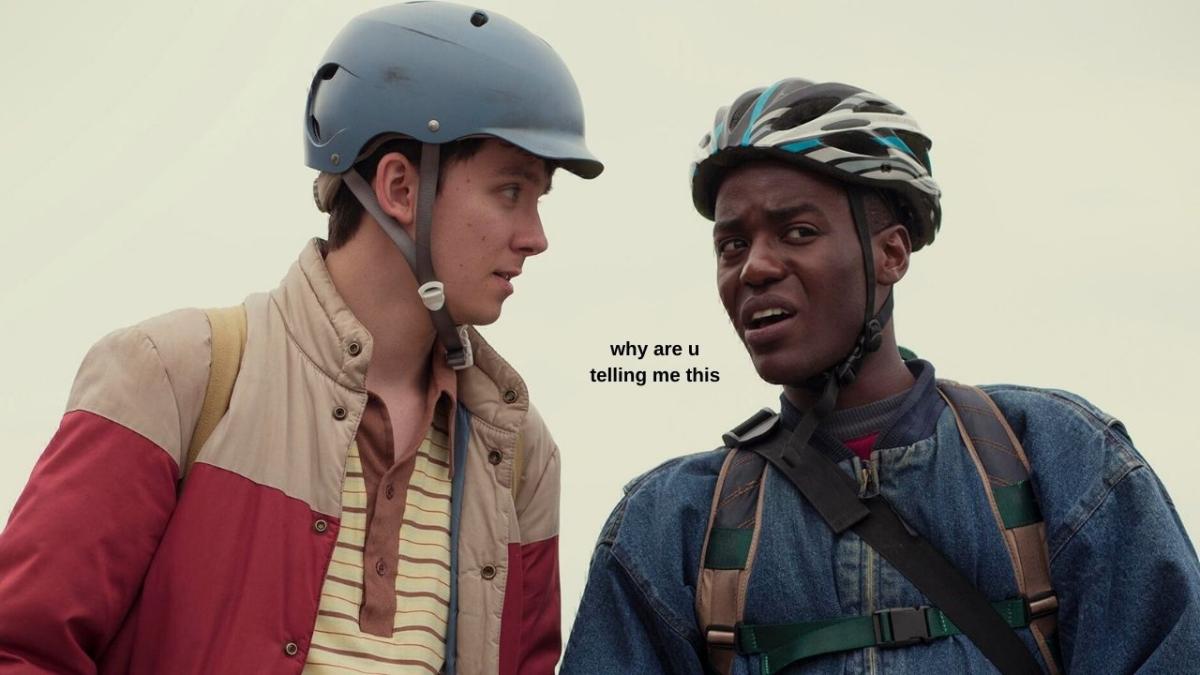
Ah Christmas. A time of joy and celebration for some, but for others, a time of sitting through your family’s awkward, racist, bigoted conversations. A shit situation, but please stop telling us marginalised folk about it, thanks.
Christmas is a mixed bag for most people. There’s the joys of seeing the people you love, opening gifts, eating good food, etc. Annnnd then inevitably a racist family member starts calling for immigration bans. Or maybe grandma uses a slur as casually as saying ‘mate’. Or someone else says something super offensive about the queer community. And also your 14-year-old cousin has officially fallen down the YouTube to white supremacy pipeline.
Something that I hear a lot from many of my white friends after their return from celebrations with their families is the frustration of having to endure bigotries like racism, homophobia, sexism, transphobia and (probably more so now because of the pandemic) ableism.
That sucks, obviously. No one likes being confronted with hateful and prejudiced bullshit during a time where you’re supposed to be on holidays and enjoying yourself. But something that I keep seeing happening over and over again is people recounting all the horrible stuff their family has said to friends who are of the marginalised identity being attacked.
And to that I need to say: please stop.
I know, I know, you’re frustrated. You want someone to vent to, especially someone who understands just how messed up some of the things your family member has said are. Naturally, you turn to the person of the minority being criticised; as a person of colour they’ll be the most outraged and sympathetic to you for having to put up with such bullshit.
Or maybe your friends happen to be a diverse bunch, so just coincidentally someone you rant to is going to be affected by the racism or bigotry you’re complaining about.
Either way, what people don’t take into account is the trauma and hurt that comes from having to hear about how all these people who you don’t know hate you.
remember white folks, when you tell the “awkward story” about the racist family member you endure for a few days during christmas — this is the micro-aggressive & plain aggressive shit POC hear (about them) all year round.
challenge racism! or you’re letting it breed.
— radam ridwan (@radamridwan) December 21, 2020
I’m a Muslim, South Asian woman. And I cannot stress enough how damaging and hurtful it has been to grow up with friends telling me how racist their parents are, as casually as they would tell me what they got for Christmas.
Sometimes a friend was ranting to me about their racist family because they were frustrated. Other times I had friends joking to me about their family member’s racism because of its perceived absurdity.
Either way it was painful because all I could do was sit there, with someone I am supposed to feel safe with, and endure stories of racism that I am constantly trying to escape. They’re feeling comforted by my presence, and I’m struggling to breathe in theirs.
If that isn’t bad enough, I then have to deal with friends insensitively complaining about how hard it is to spend two days enduring racism that isn’t aimed at them, while I have to deal with that shit all day, every day for my whole life.
Racism hurts all the time, not just when people of colour experience it directly to their face.
It hurts to be reminded of it in our moments of peace with people we love, and lord knows my mental health doesn’t need that. It hurts to see it in the news, to hear your family talk about their experiences, to watch it on TV, and to have your ‘friends’ tell you in detail, casually, about it with no respect for your wellbeing.
The same goes with recounting homophobia and transphobia to your queer friends, or ableism to your disabled friends, etc.
When you share those harmful stories to marginalised folk around you, you are retraumatising and alienating us, and the only person that finds catharsis here is you.
So please, next time you feel frustrated with your family’s bigotry, whatever the genre, even outside of Christmas — talk about it to someone who isn’t directly affected by it, and who doesn’t have to deal with it on a daily basis.
Or at the very least, check in with the friend you’re ranting to and ensure they’ve got the emotional bandwidth to add to the already heavy burden of oppression they experience.
Let’s remember that racism is a form of violence and the trauma around it is real and disheartening, even from a distance.



